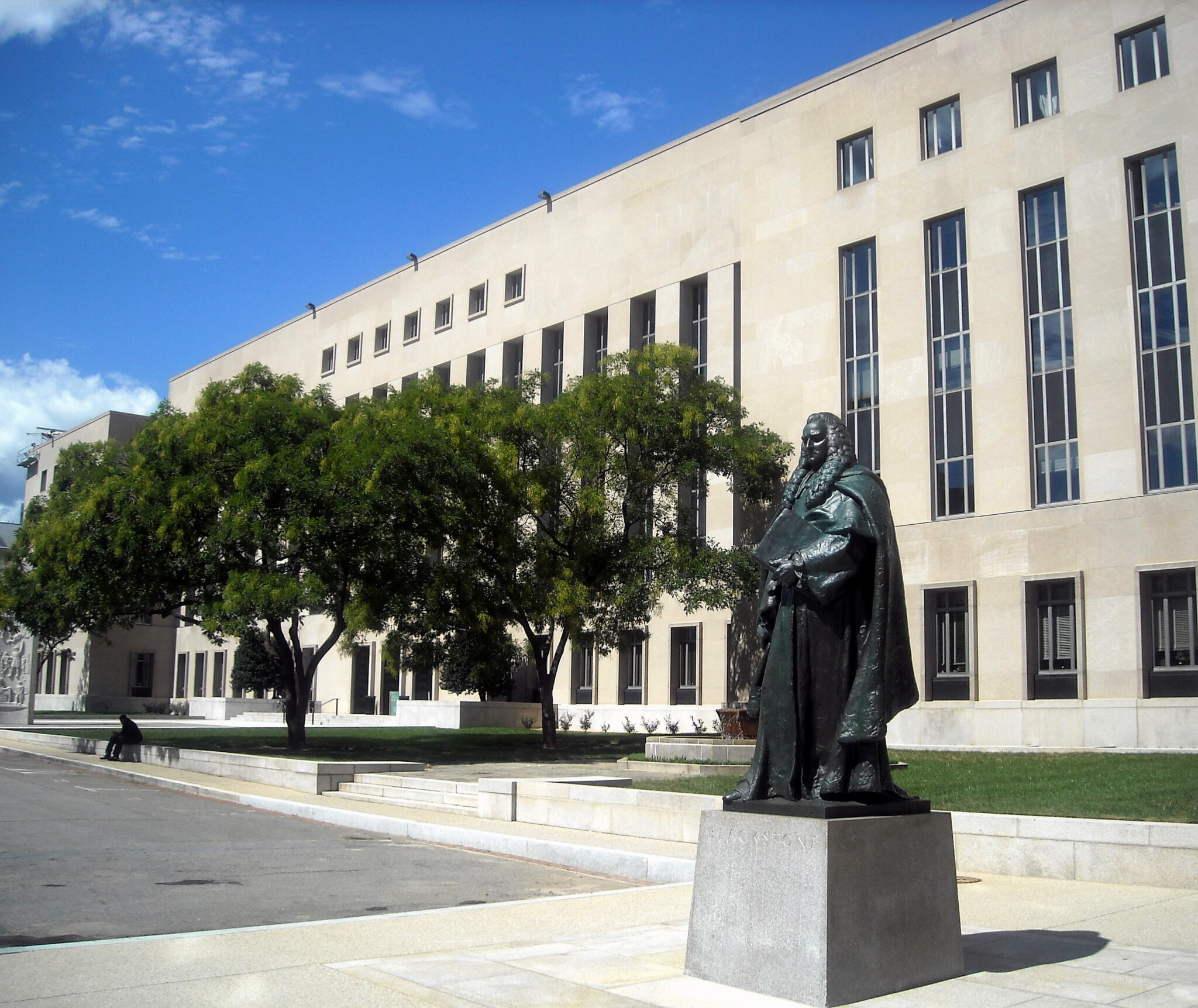
John Fry is a student at Harvard Law School.
After President Trump fired NLRB Member Gwynne Wilcox in January, the United States District Court for the District of Columbia ordered the administration to allow her to retake her seat. I covered the district court’s decision last month. However, after the administration appealed, a three-judge panel of the District of Columbia Circuit has stayed Wilcox’s return. The D.C. Circuit will hear full oral argument in the case on May 16th, likely before a different three-judge panel which will be announced later this month. Wilcox has also asked the D.C. Circuit for en banc reconsideration of the stay.
The panel voted 2-1 along partisan lines to keep Wilcox sidelined, with Republican appointees Justin Walker and Karen LeCraft Henderson each writing in concurrence to explain their decision and Democratic appointee Patricia Millett dissenting. Judge Walker acknowledged that the Supreme Court has not yet overruled its 1935 decision in Humphrey’s Executor, which upheld good-cause removal protections for the heads of the Federal Trade Commission, setting precedent for other independent agencies like the NLRB. But Walker argued that the Court in recent years has narrowed Humphrey’s to its facts, so that removal protections are now only valid “if the agency in question is the identical twin of the 1935 FTC,” which he concluded the NLRB is not. Because the NLRB enforces labor law, Walker wrote, it exercises too much “executive power” for Humphrey’s to apply.
Walker also argued that staying Wilcox’s return was necessary because reinstating her would thwart President Trump and “disenfranchise” those who voted for him. Walker reasoned that denying the NLRB a quorum—preventing it from deciding cases—would actually promote the public interest by ensuring that the agency does not act contrary to Trump’s “policy objectives.” And Walker wrote that hobbling the NLRB in this way would not unduly imperil the enforcement of labor law, because Trump can nominate new Members to once again reach a quorum.
Judge Henderson generally agreed with Walker that Humphrey’s did not cover the NLRB and wrote separately to emphasize the irreparable harm point. Henderson argued that because President Trump’s term is finite, forcing him to work with unwanted agency heads subjects the administration to irreparable harm. Henderson also decried the “headless Fourth Branch of government,” quoting the late Justice Antonin Scalia.
In her dissent, Judge Millett accused the majority of attempting to overrule the Supreme Court’s decision in Humphrey’s and described the NLRB as “predominantly an adjudicatory body,” with its enforcement (i.e. executive) powers vested in its General Counsel. Millett also argued that disabling federal agencies harms the public interest. She wrote that the majority’s decision would “trap in legal limbo millions of employees and employers whom the law says must go to these boards for the resolution of their employment disputes.” Finally, Millett warned that the logic of Judge Walker’s opinion, if taken seriously, would eliminate the independence of the Federal Reserve.
While the D.C. Circuit could reverse course when it fully considers Wilcox’s case later this spring, the Supreme Court is likely to have the final say. The future of agency independence at the NLRB and beyond may hang in the balance.








Daily News & Commentary
Start your day with our roundup of the latest labor developments. See all
July 11
Regional director orders election without Board quorum; 9th Circuit pauses injunction on Executive Order; Driverless car legislation in Massachusetts
July 10
Wisconsin Supreme Court holds UW Health nurses are not covered by Wisconsin’s Labor Peace Act; a district judge denies the request to stay an injunction pending appeal; the NFLPA appeals an arbitration decision.
July 9
the Supreme Court allows Trump to proceed with mass firings; Secretary of Agriculture suggests Medicaid recipients replace deported migrant farmworkers; DHS ends TPS for Nicaragua and Honduras
July 8
In today’s news and commentary, Apple wins at the Fifth Circuit against the NLRB, Florida enacts a noncompete-friendly law, and complications with the No Tax on Tips in the Big Beautiful Bill. Apple won an appeal overturning a National Labor Relations Board (NLRB) decision that the company violated labor law by coercively questioning an employee […]
July 7
LA economy deals with fallout from ICE raids; a new appeal challenges the NCAA antitrust settlement; and the EPA places dissenting employees on leave.
July 6
Municipal workers in Philadelphia continue to strike; Zohran Mamdani collects union endorsements; UFCW grocery workers in California and Colorado reach tentative agreements.